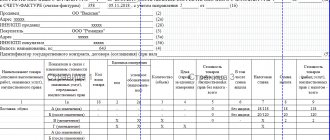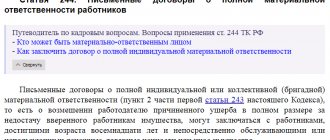The Civil Code provides for three types of intermediary agreements: orders (Chapter 49 of the Civil Code of the Russian Federation), commissions (Chapter 51 of the Civil Code of the Russian Federation) and agency agreement (Chapter 52 of the Civil Code of the Russian Federation). The above contracts have one thing in common - the intermediary (commission agent, agent) does not acquire rights to the property of the principal (principal, principal) received from the specified persons to perform any actions provided for by the contract. The income of agents, commission agents, and attorneys is remuneration. According to civil law, the amount of remuneration may not be determined by the parties. In such cases, it is paid after the execution of the commission agreement in the amount that, under comparable circumstances, is usually charged for similar services (clause 3 of Article 424 of the Civil Code of the Russian Federation).
Still, it is better when the method of calculating remuneration chosen by the parties is fixed in the contract. A clear statement in the contract of the methodology for calculating the amount of remuneration will help to avoid claims from tax authorities in the future. The parties to the contract may stipulate a fixed amount of the intermediary's fee or the method by which it will be determined.
The procedure for calculating remuneration can also be reflected in the intermediary’s report. For example, an agreement can provide for remuneration as a percentage of the amount of goods sold, either in a fixed amount, regardless of the volume of sales, or in the form of the difference between the price set by the principal and the selling price (more favorable price) at which the transaction was ultimately completed, or in some other way.
According to Article 1001 of the Civil Code of the Russian Federation, the principal is obliged, in addition to paying remuneration, to reimburse the commission agent for all expenses aimed at executing the order.
Intermediary taxes
Intermediaries take into account the amount of their remuneration as income when calculating the income tax base. This is stated in Articles 156, 249 and subparagraph 9 of paragraph 1 of Article 251 of the Tax Code of the Russian Federation. If the intermediary company receives additional benefits, then part of it is also subject to income tax.
note
If a company suddenly, without any apparent business purpose, switches to intermediary agreements, then the inspectorate may consider such transactions to be unrealistic and not intermediary agreements, but, for example, purchase and sale or supply agreements.
Income tax income does not include income in the form of property, including funds received by the commission agent in connection with the fulfillment of obligations under the commission agreement, to reimburse expenses incurred by him at the expense of the principal, if such costs are not subject to inclusion in the commission agent’s expenses in in accordance with the terms of the concluded agreements (subclause 9, clause 1, article 251 of the Tax Code of the Russian Federation).
Intermediary agreements, their use in tax schemes: how to avoid consequences
Legal field of intermediary agreements
Intermediary agreements are a group of agreements provided for by the Civil Code of the Russian Federation (hereinafter referred to as the Civil Code of the Russian Federation), in accordance with the terms of which one party undertakes to commit
interests of the other party of any action, usually a transaction.
Types of intermediary agreements
Commission agreement
In accordance with Art. 990 of the Civil Code of the Russian Federation, under a commission agreement, one party (the commission agent), on behalf of the other party (the principal), for a fee, always makes transactions on its own behalf, but at the expense of the principal.
The rights and obligations under transactions carried out by the commission agent with third parties arise with the commission agent.
Agency agreement
Under a contract of agency, one party (the attorney) always performs certain legal actions on behalf and at the expense of the other party (the principal). The rights and obligations under a transaction completed by an attorney arise directly from the principal (Article 971 of the Civil Code of the Russian Federation).
Agency contract
According to Art. 1005 of the Civil Code of the Russian Federation, one party (agent) performs legal or other actions on behalf of the other party (principal) and at his expense, both on his own behalf and on behalf of the principal.
Under an agency agreement, the rights and obligations of the parties to transactions made by the agent with third parties depend on whose behalf the agent acts on.
Despite the fact that all intermediary agreements have specific features that allow them to be considered as independent civil law transactions, they have common characteristic features.
1. All of the above types of contracts are paid. A contract of agency may be gratuitous, but only if this is stipulated in the contract itself.
2. The intermediary always acts in the interests of the customer and at his expense.
3. Ownership of the goods sold, as well as all receipts, never passes to the intermediary. What he received from third parties is the property of the customer and is subject to transfer to the latter.
4. Settlements between the customer and third parties can be made either directly with or without the participation of an intermediary.
Features of taxation of intermediary agreements
A special feature of the taxation of intermediary agreements is that all funds and other property received by the intermediary (including reimbursement of expenses incurred by him) are not recognized as his income subject to taxation.
The income of an intermediary is only the amount of his remuneration, which is subject to taxation with income tax (clause 9, clause 1, article 251 of the Tax Code of the Russian Federation), VAT (clause 1, article 156 of the Tax Code of the Russian Federation), and also falls under the simplified tax system (chapter 26.2 of the Tax Code) RF). These norms are widely used by intermediaries in business activities when carrying out transactions (including sales) with “foreign” goods (works, services).
In other words, when calculating the intermediary’s income tax, VAT, and applying the simplified tax system, only the amount of remuneration is taken into account, and not the entire amount of money received into their account as part of the execution of the contract. Whereas in contracts for the provision of services, supplies, purchase and sale, income tax, VAT, and the use of the simplified tax system should be calculated from the entire amount of funds received into their account as the fulfillment of the relevant contractual obligations.
Intermediary agreements are very attractive from a tax perspective. And the specific nature of the contractual nature of mediation made it possible to build tax schemes on their basis.
Inflating prices using intermediary agreements
One of the most common tax schemes is a situation in which the principal (principal), purchasing the resources he needs through an intermediary, thereby inflates his expenses and tax deductions for “input” VAT. In such a situation, you may be faced with the following claim from the tax authorities: the taxpayer created a scheme for the movement of goods in order to artificially increase its price through intermediaries who pay VAT only on their intermediary fees.
A simple example can be given. The tenant rents part of the property directly from the owner, and rents the other part through an intermediary. In fact, the owner is the intermediary. Let's assume that the cost of the property for the owner is 100 rubles, the tenant pays rent through an intermediary in the amount of 130 rubles. An intermediary carries out activities for a fee. In order for property to be rented from him for 130 rubles, he purchases it for 120 rubles. In the absence of an intermediary in this scheme, the owner could set the rent at 125 rubles. and would have a larger amount of income, and the tenant would have a smaller amount of expenses. We see a cost-effective situation for both.
But the presence of an intermediary in the scheme allows the owner to reduce their tax burden, and the tenant to increase the expenses accepted for tax purposes, thereby allowing them to pay a smaller amount of income tax, as well as VAT.
Consequences
The taxpayer should be prepared for the question of the inspection authorities about why the agreement was concluded not directly, but through an intermediary.
An argument in such a situation can be the exclusivity of the agreement between the owner and the intermediary, when the owner works only through an intermediary for a certain property and there is no opportunity to purchase the property directly from the owner. But these nuances must be specified in the agreement for intermediary services. And if necessary, you will have to explain the economic benefits of such a transaction.
Reducing income and applying the simplified tax system
This scheme using intermediary agreements assumes preserving the right to use the simplified taxation system if the limits established for its application are actually exceeded (revenue from sales, cost of fixed assets, etc.).
The advantages of using the simplified tax system are known. Organizations and individual entrepreneurs using this special taxation regime are exempt from a number of taxes (profit, property tax), are not recognized as VAT payers, carry out tax accounting procedures and submit reports in a simplified form, and may not keep accounting records (except for fixed assets and intangible assets). ), and also have a number of other advantages.
But there is a problem with the established restrictions of the special regime, compliance with which is a necessary condition for its application. One of the most significant is the income limit, if exceeded, the taxpayer faces losing the right to use the simplified tax system and switching to the general taxation regime.
You can get around this problem if you use an intermediary agreement, turning from a seller into an intermediary.
In other words, a scheme emerges, it looks quite simple. A taxpayer applying the simplified tax system creates one or more controlled “fly-by-night” organizations, which formally become sellers of goods, engaging intermediaries in the sale. Intermediary agreements are concluded with a “simplified” person acting as an intermediary. He continues to sell goods to third parties in the same manner as previously, before concluding the relevant intermediary agreements, but now, as it were, in the interests of his principals (principals, principals).
In this case, the proceeds from sales are not all the funds received from the sale of goods (works, services), but only a part - the intermediary’s remuneration. As a result, the right to use the “simplified tax” is retained, since the amount of the taxpayer’s income becomes significantly lower than the amount that would have been received in the absence of such formal mediation.
Consequences
The organizer of the scheme faces the risk that the regulatory authorities will recognize him as a single legal entity together with his counterparties who have a single business goal and common interests. In this case, all income received from the sale will be recognized as the income of the intermediary, as a result of which their permissible amount established by clause 4 of Art. 346.13 Tax Code of the Russian Federation. Then, to calculate underpaid taxes, the rules governing the general taxation regime provided for in Chapter. 21 “Value Added Tax”, 25 “Organizational Income Tax” of the Tax Code of the Russian Federation, and measures were also taken to collect penalties and fines.
An example of the situation described is the Resolution of the Federal Antimonopoly Service of the Volga District dated February 27, 2010 in case No. A65-17085/2009.
The organization was engaged in the preparation of design and estimate documentation. Instead of concluding direct contracts with clients, the taxpayer decided to act as an agent in the interests of two organizations using a special simplified tax system regime. He did not include the amount of proceeds from the sale of goods as income, apart from a small amount of agency fees. The tax authorities considered these contracts to be formal and included the full cost of the services provided in the organization’s income.
During the trial, it was found out that the principal organizations were shell companies and did not actually provide any services, only transferring the taxpayer’s money to the accounts indicated by him, which were then cashed out, and for this they received a meager remuneration.
Based on these facts, the court recognized as legal the decision of the tax authority to hold the taxpayer accountable in connection with the unlawful failure to include significant amounts in income and understatement of the tax base for the single tax paid in connection with the application of the simplified tax system. In addition, non-calculation and non-payment of significant amounts of VAT were established.
Intermediary agreements are also used in holding structures using transfer schemes. Let's take a closer look.
Interdependence. Transfer prices
Transfer pricing is the sale of goods or services within a group of related entities (holding structures) at prices different from market prices.
But there are some peculiarities here.
The concept of “interdependent persons” is given in Art. 20 Tax Code of the Russian Federation. It means individuals or organizations whose relationships may affect the conditions or economic results of their activities or the activities of the persons they represent.
In this regard, one should remember the requirements set out in Art. 40 of the Tax Code of the Russian Federation, which provides a list of cases when tax authorities are given the right to check the correct application of prices for transactions.
One of them is the situation of concluding transactions, including intermediary ones, between interdependent persons, such as holding companies.
The economic efficiency of using transfer pricing is limited to 20% (clause 4, clause 2, article 40 of the Tax Code of the Russian Federation), which, of course, cannot be interesting.
Let's pay attention to the transfer prices themselves.
The choice of transfer pricing method is based on the objectives set.
There are three main methods for developing transfer prices that can be used for settlement purposes between related companies:
1. Comparable uncontrolled price method.
Prices are set based on:
— list prices for similar or similar services on the market for these services;
— list prices for the same services provided to external customers (if services are provided to both internal and external customers).
In this method, the issue of controlling price deviations of more than 20% from the price of identical (homogeneous) goods (works, services) is important.
2. Resale price method.
This method is used in intermediary agreements.
On its basis, the price of the product is calculated when it is transferred to the reseller (intermediary). To do this, the resale price is reduced by the amount of the markup, which is the amount by which the reseller would like to cover his costs and make a corresponding profit.
The method is used when goods are transferred between related parties before the sale to a related party. The disadvantage is that there are risks of subjective compensation of costs to obtain the corresponding profit.
With this method, it is especially necessary to closely monitor compliance with the provisions of Art. 40 of the Tax Code of the Russian Federation (this was discussed above). And this is the weak point of using the resale price method.
3. Cost plus profit method.
With this method, to determine the market price, the direct and indirect costs of the service provider are taken into account and a markup that is usual for this field of activity is added to them.
The use of transfer prices is due to the following reasons:
— redistribution of financial resources within the holding. As a rule, this is the concentration of financial resources in one profit center for the purpose of their further redistribution in accordance with the needs of the holding;
— use of transfer pricing to optimize taxation. This result is achieved if the profit center takes advantage of possible tax benefits, which reduces the tax burden on the holding as a whole.
Tax authorities usually pay attention to the second reason for using transfer prices.
An example is the conclusion of the Constitutional Court of the Russian Federation in paragraph 3 of the reasoning part of Resolution No. 9-P of May 27, 2003: “In cases where the law provides for certain benefits that exempt from paying taxes or allow reducing the amount of tax payments, in relation to the relevant categories taxpayers, the obligation to pay legally established taxes implies the need to pay them only in that part to which benefits do not apply, and it is in this part that such taxpayers are held liable for non-payment of legally established taxes.
Consequently, it is unacceptable to establish liability for such actions of the taxpayer, which, although they result in non-payment of tax or a reduction in its amount, consist in the use of the rights granted to the taxpayer by law related to legal exemption from paying tax or the choice of the most profitable forms of entrepreneurial activity for him. activities and, accordingly, the optimal type of payment.”
This conclusion of the court is very important, since it confirms that optimization of tax payments, including the use of intermediary agreements, with corresponding transaction prices, is the constitutional right of the taxpayer.
Tax risks
Tax authorities often consider taxpayers using various tax schemes as unscrupulous.
I would like to draw the reader’s attention to Resolution of the Plenum of the Supreme Arbitration Court of the Russian Federation dated October 12, 2006 No. 53 “On the assessment by arbitration courts of the validity of a taxpayer receiving a tax benefit” (hereinafter referred to as Resolution No. 53).
In it, the Supreme Arbitration Court of the Russian Federation supplemented the concept of an unscrupulous taxpayer with a new term - “unjustified tax benefit.”
Thus, a tax benefit is understood as a reduction in the amount of tax liability due, in particular, to a reduction in the tax base, receipt of a tax deduction, tax benefit, application of a lower tax rate, as well as obtaining the right to a refund (offset) or reimbursement of tax from the budget.
This definition is applied by the inspectorate to intermediary transactions.
The actions of the taxpayer to obtain a tax benefit are in themselves lawful and justified.
Resolution No. 53 notes that when a taxpayer submits to the tax authority all properly executed documents provided for by the legislation on taxes and fees in order to obtain a tax benefit, this is a sufficient basis for receiving it, provided that the tax authority has not proven unreliability or inconsistency incompleteness of the information contained in these documents.
In this regard, the Resolution of the Ninth Arbitration Court of Appeal dated September 15, 2010 No. 09AP-20679/2010-AK in case No. A40-16146/10-107-59 is interesting.
It examines a situation where the Company, in accordance with the terms of the contracts, instructed the Agent to perform legal and actual actions for a fee, including entering into contracts with product suppliers on its own behalf, and the Company undertook an obligation to accept and pay for the Agent’s services.
According to the tax authorities, expenses associated with the supply of material and technical resources, carried out under agency agreements with the Company, were economically unjustified and undocumented.
To support their argument, the tax authorities relied on the following.
The Company deliberately organized business relationships during the acquisition of equipment by artificially involving intermediaries in the chain of persons who were not related to the acquisition and supply of equipment, which resulted in the Company receiving unjustified tax benefits in the form of VAT amounts unlawfully accepted for deduction; the company purchased equipment at a price significantly higher than the price of equipment offered by the manufacturers of this equipment, from which it was concluded that the specified equipment could have been purchased directly from the manufacturers.
The court pointed out that the tax authority’s assertion that the company deliberately organized economic relationships when purchasing equipment by artificially involving intermediaries in the chain of persons who were not related to the acquisition and supply of equipment cannot be taken into account.
Indeed, in the decision, the tax authority described in detail the data separately for each organization. None of the organizations was and is not a counterparty of the company. In addition, these organizations, as indicated in the decision, confirmed this fact, which indicates the absence of ties between the Company and these organizations.
There was no evidence of public awareness of the deliberate organization of economic relationships between equipment suppliers by the tax authority in violation of paragraph 2 of Resolution No. 53.
The court came to the conclusion that the tax authority’s arguments that the sale of equipment to the Company was carried out at inflated prices does not correspond to the actual circumstances. And, as a result, the tax authority’s conclusion about the unlawful use of VAT deductions for expenses related to the supply of material and technical resources is not documented.
Another interesting example of a taxpayer receiving a justified tax benefit is the Resolution of the Federal Antimonopoly Service of the Volga-Vyatka District dated December 11, 2009 in case No. A28-1068/2009-25/33.
According to the tax authorities, the Company received an unjustified tax benefit in the form of a VAT refund from the budget, an understatement of the tax base for profits due to overestimation of the costs of purchasing raw materials and materials associated with the production of products, as a result of the Company’s participation in an artificial chain of suppliers (intermediaries).
The court referred to the provisions of Resolution No. 53. It noted that judicial practice in resolving tax disputes is based on the presumption of good faith of taxpayers and other participants in legal relations in the economic sphere. In this regard, it is assumed that the actions of taxpayers resulting in the receipt of tax benefits are economically justified, and the information contained in the tax return and financial statements is reliable.
The court concluded that the documents submitted by the Company confirm the purchase of goods and payment of their cost. Invoices comply with the requirements of the Tax Code. The expenses incurred by the company are justified and documented. The Inspectorate's arguments about the possibility of officials influencing decision-making are speculative. The correctness of the application of prices in accordance with Art. 40 of the Tax Code of the Russian Federation The Inspectorate did not check. The Inspectorate has not provided any evidence regarding the prices for the purchase of disputed raw materials.
What can serve as a justification for the use of intermediary agreements?
The clue lies in the same Resolution No. 53.
It, in paragraph 5, provides a list of some circumstances that may indicate an unjustified tax benefit:
— the impossibility of the taxpayer actually carrying out transactions, taking into account the time, location of property or the volume of material resources economically necessary for the production of goods, performance of work or provision of services. An example is the taxpayer’s lack of transport and documents confirming the transportation of goods;
— lack of necessary conditions for the relevant economic activity due to the lack of managerial or technical personnel, fixed assets, production assets, warehouses, and vehicles. An example in this case is the provision of cargo storage services in the absence of a warehouse;
— accounting for tax purposes only those business transactions that are directly related to the emergence of a tax benefit, if this type of activity also requires the completion and accounting of other business transactions;
- carrying out transactions with goods that were not produced or could not be produced in the amount indicated by the taxpayer in the accounting documents.
This situation may arise, for example, if the purchase of goods is carried out by an intermediary from a supplier who did not conduct transactions during the reporting (tax) period in question.
At the same time, paragraph 6 of Resolution No. 53 directly states that the circumstances of the interdependence of the parties to the transaction and the use of intermediaries in business transactions cannot in themselves serve as a basis for deeming a tax benefit unjustified.
A tax benefit may be recognized as unjustified if the tax authority proves that the taxpayer acted without due diligence and caution and he should have been aware of violations committed by the counterparty, in particular, due to the relationship of interdependence or affiliation of the taxpayer with the counterparty.
A tax benefit may also be recognized as unjustified if the tax authority proves that the activities of the taxpayer, its interdependent or affiliated persons are aimed at carrying out transactions related to tax benefits, mainly with counterparties that do not use their tax obligations.
For example, let us turn to the Resolution of the Federal Antimonopoly Service of the Central District dated April 19, 2010 in case No. A09-8429/2008.
The tax inspectorate filed claims for the unreliability of information about business transactions contained in the invoices submitted by the taxpayer to justify the right to apply tax deductions on purchased milk, including the amount of VAT. The reason was the purchase of milk from agricultural producers who are payers of the single agricultural tax and entrepreneurs who are on a simplified taxation system.
In addition, she also pointed out the Company’s use of an artificially created chain of intermediary firms in order to obtain an unlawful tax benefit in the form of VAT reimbursement from the budget: the absence of a reasonable, economically justified business goal in relations with suppliers.
Recognizing the inspection's decision as invalid, the court of first instance came to the conclusion that the inspection had failed to prove the circumstances underlying the decision.
Based on the provisions of paragraph 6 of Resolution No. 53, the court concluded that the inspection did not prove that the Company’s transactions with suppliers were fictitious.
The inspector's arguments do not find sufficient confirmation in the case materials, since the tax authority has not refuted the facts of the acquisition of controversial volumes of raw milk, payment and use of it by the taxpayer in production activities.
The court indicated that the tax authority did not provide the court with adequate evidence that the applicant acted illegally and that there was no reasonable economic purpose in the transactions concluded.
The tax authority's arguments that the Company's suppliers do not have property, are limited to a small number of employees, and do not fulfill the obligation to pay turnover taxes on the sale of milk were found unfounded.
During the inspection, the inspection did not establish any of the above-mentioned circumstances in paragraph 5 of Resolution No. 53 that cast doubt on the integrity of the taxpayer.
The court came to the conclusion that the documents presented by the Company together confirm the reality of business transactions carried out within the framework of contracts with suppliers, the actual execution of contracts by both parties, the purchased raw materials (milk) are properly reflected in the taxpayer’s accounting and used in the production activities of the organization.
For an example, you can also refer to the Resolution of the Federal Antimonopoly Service of the North-Western District dated October 26, 2009 in case No. A56-15244/2007.
The Inspectorate believed that the Company received an unjustified tax benefit by reducing taxable profit due to an increase in material costs by the difference between the price of supply of packaging materials under sham transactions concluded with counterparties who did not fulfill their tax obligations, and the actual price of supply of these materials established by the manufacturers. According to the tax authority, as a result of purchasing goods not from the manufacturer, but through a chain of intermediaries, the Company received an unjustified tax benefit, understating the tax base for income tax and overstating tax deductions for VAT.
The court concluded that the evidence presented by the Inspectorate does not indicate the economic uncertainty of the Company's expenses for the purchase of packaging materials, and the use of intermediaries in disputed transactions does not indicate the receipt of an unjustified tax benefit.
The Company has fulfilled the conditions stipulated by tax legislation for submitting VAT paid to suppliers for reimbursement. The Inspectorate does not have evidence of the unreliability of primary documents or the focus of the Company’s activities solely on obtaining unjustified tax benefits through VAT refunds from the budget.
The tax authority's reference to the fact that counterparties have not transferred tax to the budget cannot serve as a basis for denying the Company the right to include VAT actually paid to suppliers as part of tax deductions.
From the above examples it is clear that the taxpayer can really defend his position. To do this, he needs to prove the reality of completed transactions using intermediary agreements, justify them with supporting documents, which will be properly reflected in the accounting of his economic activities and, as a result, will protect him from attacks by inspection authorities.
Source: Magazine “Tax Accounting for Accountants”
Expense accounting
Expenses not reimbursed by the principal are taken into account as income tax expenses (letters of the Ministry of Finance No. 03-03-06/1/458 dated July 13, 2010 and No. 03-03-06/1/712 dated October 30, 2009) . According to paragraph 1 of Article 252 of the Tax Code of the Russian Federation, expenses are recognized as justified and documented expenses incurred by the company. Subject to compliance with the norms established by Article 252 of the Tax Code of the Russian Federation, the commission agent has the right to include in his expenses taken into account for income tax purposes only those costs that, according to the Civil Code of the Russian Federation and the norms established by the agreement, are not reimbursed by the committent and, therefore, are not reflected in tax accounting with the principal.
Where to order?
There is another ordering option - in the largest retail online stores or at online auctions (the most popular are Chinese TaoBao and English-language eBay). They are attractive with a huge selection of a wide variety of goods - from equipment to branded clothing, from jewelry to building materials, from antiques to cars at low prices. However, ordering them without the help of intermediaries is either quite difficult or completely impossible, since you may need a special card to pay for the order (for example, the TaoBao online store only works with the special Alipay payment system, which is available exclusively to holders of Chinese plastic cards).
In addition, most sellers do not send goods to Russia or other countries, and contacting special intermediary companies for a one-time order is not very profitable, since they take a large percentage (up to 40%) for their services. Therefore, those who want to place an order from such a site are happy to use intermediaries.
No refund
The commission agent's expenses include only those economically justified and documented expenses that the principal does not have to reimburse under the terms of the contract. Thus, in order to avoid disputes with inspectors, the parties to the contract must clearly establish what expenses the principal will reimburse the commission agent. The latter's report must contain information on the amount of actual costs incurred that are subject to reimbursement. The report must be accompanied by primary documents confirming the fact of expenses. According to paragraph 3 of Article 271 of the Tax Code of the Russian Federation, income in the form of remuneration is recognized in the tax accounting of an intermediary using the accrual method on the date of approval of the intermediary’s report, regardless of the receipt of funds. When concluding mediation agreements, it is necessary to take into account the risks that may arise for both parties to the contract. Let's look at some of them.
Accounting
For an intermediary, the remuneration paid by the customer is revenue from the sale of intermediary services (clause 5 of PBU 9/99). The remuneration is recognized as income from ordinary activities, which is reflected in accounting on the date of approval by the customer of the intermediary’s report (clause 5, 12 of PBU 9/99).
For organizations that have the right to conduct accounting in a simplified form, a special procedure for accounting for income is provided (Parts 4, 5, Article 6 of the Law of December 6, 2011 No. 402-FZ).
In accounting, reflect settlements with the customer on account 76 “Settlements with various debtors and creditors”, to which it is advisable to open sub-accounts:
- “Settlements with the customer for sold goods (work, services)” (if the subject of the contract is the sale of goods (work, services) belonging to the customer);
- “Settlements with the customer for purchased goods (work, services)” (if the subject of the agreement is the acquisition of goods (work, services) required by the customer);
- “Settlements with the customer for reimbursement of expenses”;
- "Settlements with the customer for remuneration."
In the accounting of the intermediary, the remuneration due under the contract is reflected by transactions (excluding VAT transactions):
Debit 76 subaccount “Settlements with the customer for remuneration” Credit 90-1 - reflects the amount of remuneration for intermediary services (based on the agreement and the intermediary’s report);
Debit 76 subaccount “Settlements with the customer for sold goods (works, services)” Credit 76 subaccount “Settlements with the customer for remuneration” - intermediary remuneration is withheld from the proceeds received in payment for sold goods (works, services) of the customer (if the intermediary is involved in the settlements );
Debit 76 subaccount “Settlements with the customer for purchased goods (works, services)” Credit 76 subaccount “Settlements with the customer for remuneration” - intermediary remuneration is withheld from funds received from the customer for the purchase of goods (works, services) (if the intermediary is involved in the settlements );
Debit 51 (50) Credit 76 subaccount “Settlements with the customer for remuneration” - remuneration has been received for the performance of intermediary services (if the intermediary does not participate in the settlements).
Business goal
When concluding intermediary agreements, it is important to prove to inspectors the existence of a business purpose and economic feasibility in involving an intermediary. For example, the economic meaning may be to increase sales volume, sell products at a better price, enter new markets, improve the quality of services provided, etc. In tax disputes, it is often necessary to prove that intermediaries are not superfluous links in the chain of counterparties that are invented specifically to optimize taxation, as fiscal officials often think, but are involved, for example, to increase the number of buyers, for faster and more profitable sales of products, etc.
What is profitable to do
To achieve maximum success, you need to decide what could be the most profitable and promising intermediary business.
First you should:
- carefully analyze the current situation in your city and region;
- Based on the information received, determine which goods and services are most in demand;
- using all printed and electronic information sources available to you, create the most extensive database of companies and organizations that may require intermediary services for a fee;
- choose the direction that suits you best and start organizing your business.
Good prospects open up for those who decide to become intermediaries between sellers and buyers of such popular goods as computer equipment, cars, bakery products, clothing and shoes. Significant success can be achieved by doing business in the mediation of services: a skillful and active intermediary can make a very impressive profit by finding clients for experienced and qualified builders, repair specialists, tailors, plumbers, electricians, as well as professionals working in many other spheres.
Examples of profitable business through mediation
Currently, there are several options for intermediary business, in which you can significantly succeed. Among the most successful of them are:
- Real estate agency. By acting as an intermediary between sellers and buyers of real estate, you can count on receiving impressive profits.
- Travel business. It is very profitable to become an intermediary between operators who provide tours and clients who want to go on a tourist trip. To provide such services, you need to rent a small room and enter into an agreement with a reliable and trusted tour operator.
- Taxi service. In this case, you can easily find regular customers if you hire several dispatchers, attract experienced drivers with their own cars and advertise your phone number well.
- Intermediation services between repair contractors and clients.
- Own recruitment agency. This is a very promising intermediary type of business, which is built on finding suitable applicants. All that is needed for this is a separate room with a computer, telephone and office equipment.
- Used car dealership.
- Cleaning services company.
- Courier delivery service.
The reality of services
In disputes with tax authorities, it is imperative to confirm the reality of the intermediary’s services. The reality of contracts is confirmed by documents - reports must be available, as well as primary documents: payment orders, papers confirming the transportation of goods from the principal to the commission agent, from the commission agent to customers, invoices, delivery notes, etc. In the contract or in The report must establish clear components of the cost of the intermediary's remuneration. Inspectors must understand how the intermediary's remuneration is calculated, which expenses are reimbursed by the principal and which are not reimbursed. The papers must clearly confirm how the goods were moved. Otherwise, there may be claims from auditors.
If a company suddenly, without any apparent business purpose, switches to intermediary agreements (agency agreements, commission agreements), then the inspectorate may consider such transactions to be unrealistic and not intermediary agreements, but, for example, purchase and sale or supply agreements. And accordingly, unfavorable consequences for the company may occur in the form of taxation of such contracts based on their reclassification as ordinary sales contracts with the subsequent additional charge of income tax and VAT. The intermediary agreement should not contain provisions that contradict the nature of such transactions.
Payment of remuneration
Regardless of the nature of the order, the intermediary may or may not participate in settlements with counterparties.
If the intermediary is involved in settlements, he can independently withhold the amount of his remuneration:
- from revenue received from customers (if the subject of the contract is the sale of goods (works, services) of the customer);
- from funds received from the customer (if the subject of the contract is the purchase of goods (works, services) for the customer).
If the intermediary does not participate in the settlements, the customer transfers the remuneration for the execution of the order to him. The size, conditions and procedure for payment of intermediary remuneration must be specified in the contract.
This follows from the provisions of Articles 410, 972, 997, 1011 of the Civil Code of the Russian Federation.
Commission agreement
An analysis of judicial practice shows that tax authorities often reclassify transactions from intermediary ones to commission agreements, and the courts support them in this. For example, in the Resolution of the Federal Antimonopoly Service of the West Siberian District dated June 25, 2008 No. F04-3204/2008(5460-A03-41) in case No. A03-10065/07-18, the judges shared the opinion of the tax authority on the reclassification of the commission agreement into a purchase agreement. sales. Having examined the case materials, the arbitrators found that the principal and the commission agent are interdependent persons, since the director and founder of both companies is the same person. In this case, the principal does not fulfill his obligations to pay taxes, does not submit reports, is not at a legal address, is not a payer of value added tax, he does not have shipping and other documents indicating the reality of business transactions, and the commission agent indicates income and calculates taxes based on from remuneration that was obviously underestimated. As a result, the court agreed that the intermediation scheme was used by organizations to obtain unjustified tax benefits.
Staff
As a rule, these are two people - one in Russia, who accepts the order and prepayment for it, and the second - in the country where the sellers from a certain online store are located, who pays for the goods with their card and sends them to Russia. A Russian-speaking intermediary abroad can be found on special websites and forums. However, its choice must be approached very carefully. Cases of deception or fraud, unfortunately, occur quite often. The best option is when the second intermediary is a person you know.
At the very beginning, you should choose only one site, since each of them has its own specifics, and with a large number of orders you simply will not be able to cope. As a rule, two intermediary organizers take 10-20% of each accepted order. There may be restrictions on the minimum order amount (for example, from 1.5-2 thousand rubles), less than which, due to the high cost of delivery, it is unprofitable for either the buyer or intermediaries to order.









